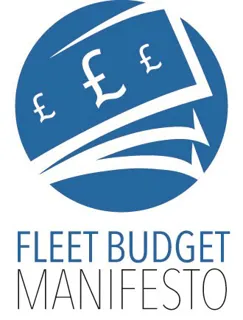The fleet industry will have to wait until the spring to see how the Government intends to mitigate the impact of WLTP on company car tax and Vehicle Excise Duty (VED).
The Chancellor Philip Hammond failed to mention company car tax in his Budget speech, despite the fleet industry urgently calling for clarity.
Instead, tucked away in the Budget papers, it says: “The Government will review the impact of WLTP on Vehicle Excise Duty (VED) and company car tax (CCT) to report in the spring.”
Fleet decision-makers have been on tenterhooks, having to extend company car contracts, while uncertainty surrounds benefit-in-kind tax rates beyond 2020/21.
Furthermore, company car drivers and fleet operators, already facing an increase in BIK due to increases in correlated NEDC CO2 figures, wanted to know how the Treasury aims to account for the full impact of WLTP.
From September 2018 until April 2020, the new WLTP CO2 value for a vehicle is being converted to correlated NEDC figures using the EU-wide CO2MPAS equation.
However, on average, it is resulting in CO2 increases of between 10% and 20%, moving many cars up a couple of tax bands.
The Government has proposed that, from April 2020, full WLTP figures will be used for BIK, VED and employers’ national insurance contributions.
Full WLTP could result in another 10-20% rise in CO2 emissions, further hitting company car drivers with higher BIK taxation deductions, exacerbated by the fact that the BIK thresholds themselves will have risen by four percentage points for most cars at that juncture.
Richard Hipkiss, managing director of Fleet Operations, said: "The Chancellor’s decision to delay a government review of the impact of WLTP on Vehicle Excise Duty and company car tax will come as a major blow to the fleet sector.
"The lack of insight into tax liabilities from April 2021 continues. Strategic long-term planning remains difficult with the lack of clarity set to continue stymying procurement decisions for many fleet operators.”
Matt Dyer, managing director of LeasePlan UK, added: “What is it going to take for the Chancellor to reveal the rates of company car tax for 2021-22 and 2022-23?
"We used to know these rates for the next five years, but now the Government seems determined to keep fleets and motorists in the dark. This is terrible for businesses who are trying to plan for the future, particularly at a time when there is already so much uncertainty.
"Philip Hammond must rectify this as soon as possible – preferably in the forthcoming Finance Bill.”
John Webb, principal consultant at Lex Autolease, believes that the lack of long-term BiK tables is a key factor that’s holding the market back.
"Before fleet decision makers can build a strategy based around the average 48-month contract, and before employees can commit to what is essentially a four-year investment, they need assurance that the associated costs are not going to increase over its lifetime," he said.
"There has been a lot of noise about the increased availability of WLTP data causing indecision, but until fleets and drivers understand how it will impact BIK taxation and ultimately affect their finances, it is of little value to them.
"Orders for diesel vehicles are being delayed in case any further tax increases are announced which could make them prohibitively expensive. Equally, the question over whether tax incentives will be maintained for electric vehicles will determine whether and when the immediate investment in an Ultra Low Emission Vehicle fleet will pay off.”
Transport Taxes
As announced at the Conservative Party conference, and confirmed by the Chancellor in the Budget, fuel duty will be frozen for a ninth successive year.
Had the fuel duty escalator continued as planned from 2011 onwards, fuel duty today would be 83.33 pence per litre rather than 57.95 pence per litre, 43.8% higher.
In terms of alternative fuels, following a review, the Government says it will maintain the difference between alternative and main road fuel duty rates until 2032 to support the de-carbonisation of the UK transport sector, subject to review in 2024.
The Government said it will also extend Enhanced Capital Allowances (ECAs) for companies investing in electric vehicle charge points to March 31, 2023.
On VED, from April 1, 2019, VED rates for cars, vans and motorcycles will increase in line with RPI. However, to support the haulage sector, the Government will freeze VED for Heavy Goods Vehicles (HGVs) for 2019-20. (62)
In terms of VED for Vans, the Government will shortly publish a summary of responses from the consultation on VED reform for vans, published in May 2018.
The response will set out proposals to introduce environmental incentives from April 2021, it said. Bands and rates will be set out ahead of Finance Bill 2019-20.
For company vehicles, from April 6, 2019, fuel benefit charges will increase in line with RPI and the van benefit charge will increase in line with CPI.
Air Passenger Duty (APD) – short-haul APD rates for 2020-21 – will not rise, remaining at the same level they have been since 2012, benefitting 80% of passengers.
Long-haul rates will increase in line with RPI. The rates for long-haul economy will increase by £2, and the rates for those travelling in premium economy, business and first class will increase by £4. Those travelling long-haul by private jets will see the rate increase by £13.
Transport spending
The Government says that VED receipts will be ring-fenced for roads funding, announcing that the National Roads Fund will be £28.8 billion between 2020-25.
The fund, it says, will provide long-term certainty for roads investment, including the new major roads network and large local major roads schemes, such as the North Devon Link Road.
The Budget also announced the draft Roads Investment Strategy 2 (RIS2). The largest ever investment in England’s strategic roads and will enable the Government to build on the successes of Roads Investment Strategy 1 (RIS1), such as the A1(M) link to Newcastle, and progress projects like the A66 Trans-Pennine, the Oxford-Cambridge Expressway, and the Lower Thames Crossing.
The Government expects to spend £25.3bn on this strategy, funded by the National Roads Fund, between 2020-25.
Furthermore, it said it will allocate £420 million to local authorities in 2018-19 to tackle potholes, repair damaged roads, and invest in keeping bridges open and safe.
To support projects across England that ease congestion on local routes, the Government said it will also make £150m of National Productivity Investment Fund (NPIF) funding available to local authorities for small improvement projects such as roundabouts.
Justin Benson, head of Automotive at KPMG UK, said: “The £420m announced by the Chancellor to improve the UK’s roads by repairing potholes is good news for drivers, particularly for those in the freight industry.
“Our roads have been underinvested in for the last decade, deteriorating each winter, and this boost to Britain’s infrastructure will put us on a firm footing, particularly as businesses ramp up their exports.”
As part of the NPIF, the Government is also extending the Transforming Cities Fund by a year to 2022-23. This will provide an extra £240m to the six metro mayors for transport investment in their areas: £21m for Cambridgeshire and Peterborough, £69.5m for Greater Manchester, £38.5m for Liverpool City Region, £23m for West of England, £71.5m for the West Midlands, and £16.5m for Tees Valley.
In addition, a further £440m will be made available to the city regions shortlisted for competitive funding. Ten city regions are eligible for this funding, and the government will shortly be announcing a further two.
Meanwhile, to support the Industrial Strategy Future of Mobility Grand Challenge, £90m from the NPIF will be allocated to the Transforming Cities Fund to create Future Mobility Zones. This will trial new transport modes, services, and digital payments and ticketing - £20m of this will be allocated to the West Midlands.
Overall the fleet industry will be disappointed that fiscal measures called for in the Fleet Budget Manifesto were not tackled by the Treasury.
Fleet News had made its submission to HM Treasury, together with the British Vehicle Rental and Leasing Association (BVRLA) and fleet operators’ association ACFO.
The BVRLA said it was dismayed to hear that the Budget included no reference to an early introduction for the 2% company car tax rate for electric vehicles.
“The Chancellor chose to ignore the overwhelming voice of fleets, motoring groups, business organisations, environmental groups and MPs – all of whom were united in calling for this simple tax measure to support the electric vehicle market,” said Keaney.
“The Government has missed a golden opportunity to incentivise the most important market for electric cars and is in danger of undermining its own Road to Zero strategy.
























rosco7 - 29/10/2018 18:25
Well, that was a surprise. No news despite all the advice the treasury has received about the issue. Perk car schemes in particular will be either closed or vehicle orders further postponed. The damage this has to the motor industry will continue. I hear rumours that some large car dealerships may not survive until the spring when the report is meant to come out. Unfortunately it appears the treasury simply don’t understand the problem and are pushing a broken model. I suspect the delay is because of serious disagreements within the treasury. It’s going to be a dark cold winter for fleets, fleet managers and in particular company car drivers.